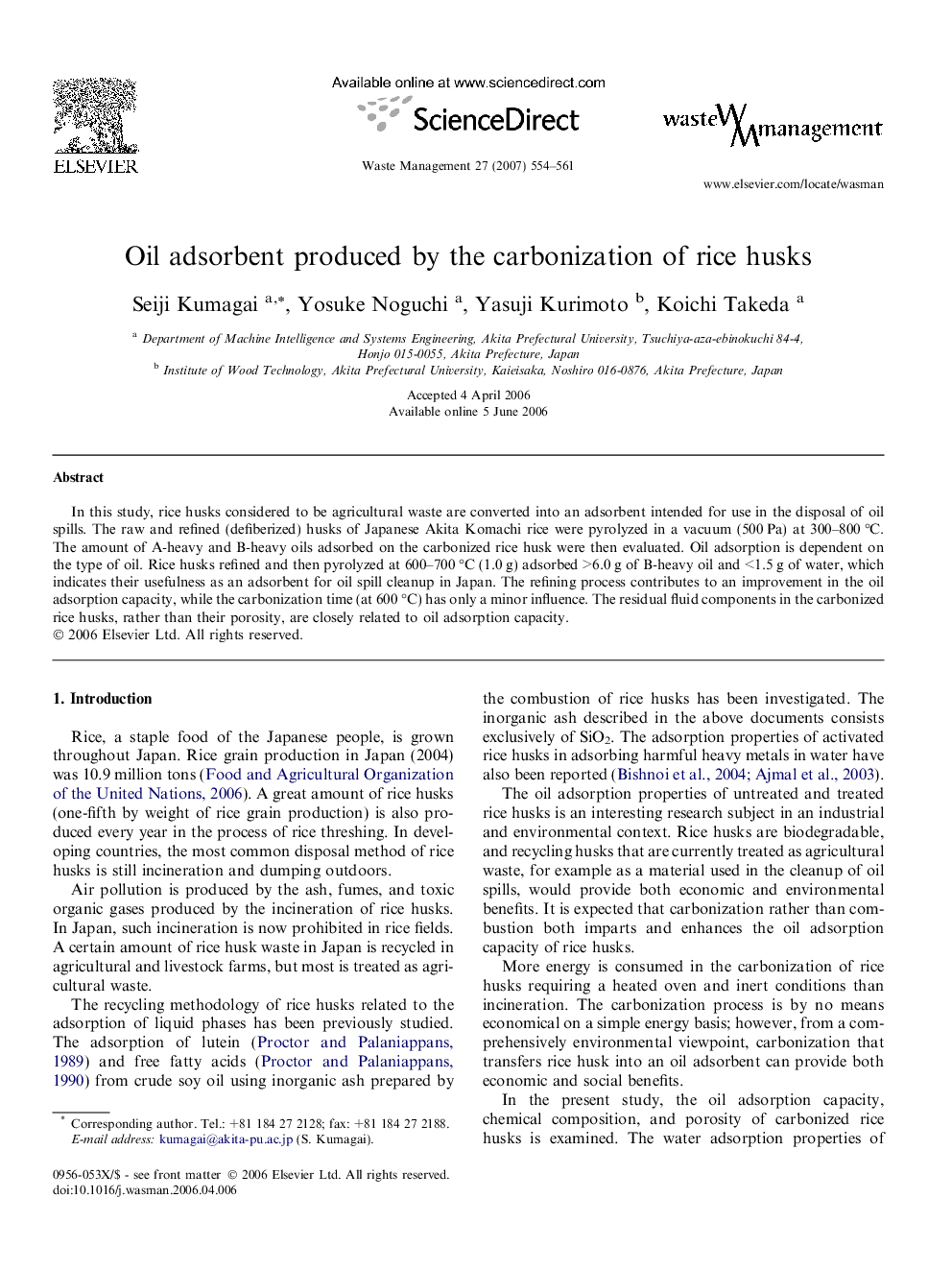| Article ID | Journal | Published Year | Pages | File Type |
|---|---|---|---|---|
| 4473604 | Waste Management | 2007 | 8 Pages |
In this study, rice husks considered to be agricultural waste are converted into an adsorbent intended for use in the disposal of oil spills. The raw and refined (defiberized) husks of Japanese Akita Komachi rice were pyrolyzed in a vacuum (500 Pa) at 300–800 °C. The amount of A-heavy and B-heavy oils adsorbed on the carbonized rice husk were then evaluated. Oil adsorption is dependent on the type of oil. Rice husks refined and then pyrolyzed at 600–700 °C (1.0 g) adsorbed >6.0 g of B-heavy oil and <1.5 g of water, which indicates their usefulness as an adsorbent for oil spill cleanup in Japan. The refining process contributes to an improvement in the oil adsorption capacity, while the carbonization time (at 600 °C) has only a minor influence. The residual fluid components in the carbonized rice husks, rather than their porosity, are closely related to oil adsorption capacity.
